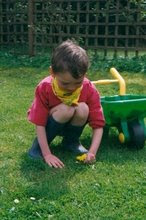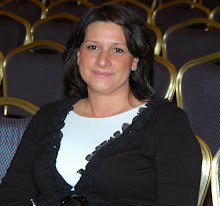 "Modern science was born through a violent break with the ancient vision of the world. It was founded on the idea — surprising and revolutionary for that era — of a total separation between the knowing subject and Reality, which was assumed to be completely independent from the subject who observed it. This break allowed science to develop independently of theology, philosophy and culture. It was a positive act of freedom. But today, the extreme consequences of this break, incarnated by the ideology of scientism, become a potential danger of self-destruction of our species.
"Modern science was born through a violent break with the ancient vision of the world. It was founded on the idea — surprising and revolutionary for that era — of a total separation between the knowing subject and Reality, which was assumed to be completely independent from the subject who observed it. This break allowed science to develop independently of theology, philosophy and culture. It was a positive act of freedom. But today, the extreme consequences of this break, incarnated by the ideology of scientism, become a potential danger of self-destruction of our species.On the spiritual level, the consequences of scientism have been considerable: the only knowledge worthy of its name must therefore be scientific, objective; the only reality worthy of this name must be, of course, objective reality, ruled by objective laws. All knowledge other than scientific knowledge is thus cast into the inferno of subjectivity, tolerated at most as a meaningless embellishment or rejected with contempt as a fantasy, an illusion, a regression, or a product of the imagination. Even the word “spirituality” has become suspect and its use has been practically abandoned.
Objectivity, set up as the supreme criterion of Truth, has one inevitable consequence: the transformation of the Subject into an Object. The death of the Subject is the price we pay for objective knowledge. The human being became an object — an object of the exploitation of man by man, an object of the experiments of ideologies which are proclaimed scientific, an object of scientific studies to be dissected, formalized, and manipulated. The Man–God has become a Man–Object, of which the only result can be self-destruction. The two world massacres of this century, not to mention local wars and terrorism — are only the prelude to self-destruction on a global scale.
In fact, with very few exceptions – Husserl, Heidegger, Gadamer or Cassirer – modern and post-modern thinkers gradually transformed the Subject in a grammatical subject. The Subject is today just a word in a phrase9.
The quantum revolution radically changed this situation. The new scientific and philosophical notions it introduced – the principle of superposition of quantum “yes” and “no” states, discontinuity, non-separability, global causality, quantum indeterminism – necessarily led the founders of quantum mechanics to rethink the problem of the complete Object / Subject separation. For example, Werner Heisenberg, Nobel Prize of Physics, thought that one must suppress any rigid distinction between the Subject and Object, between objective reality and subjective reality. “The concept of “objective” and “subjective” – writes Heisenberg – designate […] two different aspects of one reality; however we would make a very crude simplification if we want to divide the world in one objective reality and one subjective reality. Many rigidities of the philosophy of the last centuries are born by this black and white view of the world.”10 He also asserts that we have to renounce the privileged reference to the exteriority of the material world. “The too strong insistence on the difference between scientific knowledge and artistic knowledge – writes Heisenberg – comes from the wrong idea that concepts describe perfectly the “real things” […] All true philosophy is situated on the threshold between science and poetry.”11
My line of thinking is in perfect agreement with that of Heisenberg. For me, “beyond disciplines” precisely signifies the Subject-Object interaction. The transcendence, inherent in transdisciplinarity, is the transcendence of the Subject. The Subject can not be captured in a disciplinary camp.
The meaning “beyond disciplines” leads us to an immense space of new knowledge. The main outcome was the formulation of the methodology of transdisciplinarity, which I will analyze in the next section. It allows us also to clearly distinguish between multidisciplinarity, interdisciplinarity and transdisciplinarity.
Multidisciplinarity concerns itself with studying a research topic in not just one discipline only, but in several at the same time. Any topic in question will ultimately be enriched by incorporating the perspectives of several disciplines. Multidisciplinarity brings a plus to the discipline in question, but this “plus” is always in the exclusive service of the home discipline. In other words, the multidisciplinary approach overflows disciplinary boundaries while its goal remains limited to the framework of disciplinary research.
Interdisciplinarity has a different goal than multidisciplinarity. It concerns the transfer of methods from one discipline to another. Like multidisciplinarity, interdisciplinarity overflows the disciplines, but its goal still remains within the framework of disciplinary research. Interdisciplinarity has even the capacity of generating new disciplines, like quantum cosmology and chaos theory.
Transdisciplinarity concerns that which is at once between the disciplines, across the different disciplines, and beyond all discipline. Its goal is the understanding of the present world, of which one of the imperatives is the unity of knowledge12.
As one can see, there is no opposition between disciplinarity (including multidisciplinarity and interdisciplinarity) and transdisciplinarity, but a fertile complementarity. In fact, there is no transdisciplinarity without disciplinarity. In spite of this fact, the above considerations provoked, around 1990, a more a less violent war of definitions. This war is not yet finished."
Basarab Nicolescu is a major advocate of the transdisciplinary reconciliation between Science and the Humanities, Science and Religion and Science and Spirituality.
Basarab Nicolescu is a Theoretical physicist and philosopher; a Researcher at the Centre National de la Recherche Scientifique (CNRS), University of Paris 6, France; a Professor at the Babes-Bolyai University, Cluj-Napoca, Romania; a Member of the Romanian Academy; the President-Founder of the International Center for Transdisciplinary Research and Studies (CIRET), a non-profit organization (161 members from 26 countries); Founder and Director of the "Transdisciplinarity" Series, Rocher Editions, Monaco and of the "Science and Religion" Series, Curtea Veche Publishing House, Bucharest.
Link to whole article: http://www.metanexus.net/magazine/tabid/68/id/10013/Default.aspx
Link to whole article: http://www.metanexus.net/magazine/tabid/68/id/10013/Default.aspx
You might also like to read:
http://www.scribd.com/doc/17922700/Transdisciplinarity-in-Science-and-Religion-No-4-2008


















No comments:
Post a Comment